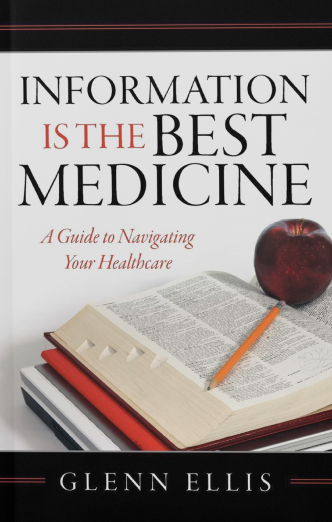 The problem of access to life-saving medicines is proving more deadly than many of the most deadly diseases themselves. Millions of people in developing countries will die within 3 years without immediate access to affordable antiretroviral medicines, according to the World Health Organization. As dismal as availability of essential medicines is, access to newer medicines, including those for chronic diseases, is even worse, because these patent-protected medicines are also too expensive.
The problem of access to life-saving medicines is proving more deadly than many of the most deadly diseases themselves. Millions of people in developing countries will die within 3 years without immediate access to affordable antiretroviral medicines, according to the World Health Organization. As dismal as availability of essential medicines is, access to newer medicines, including those for chronic diseases, is even worse, because these patent-protected medicines are also too expensive. 
Admittedly, there are many factors that contribute to a lack of access to existing medicines in developing countries: tattered health systems, insufficient numbers of health workers, weak regulatory regimes, and poor procurement and distribution systems. Yet, the most troubling problem is the price of medicines, and the corresponding protection of patents that pharmaceutical companies enjoy. But what may come as a surprise to many readers of this column is that there is a similar, and equally as deadly, “Drug War” in the United States.
In the United States and other rich industrialized nations, “Big Pharma” is already the gatekeeper for life-saving medicines. The FDA is on track to approve a record number of high-priced specialty drugs in 2015, according to a new report from Express Scripts.
But blockbuster growth comes with blockbuster spending. The 25 new treatments to gain FDA approval this year could drastically increase the country’s spending on specialty drugs, which already is a primary driver of health care costs.
Much attention has recently been focused on the skyrocketing prices of hepatitis C drugs. They’ve become a cover story-sized problem that is putting critically important medications out of reach for millions of consumers. The problem will get bigger, given that future hep C drug approvals may cost more than Sovaldi’s enormous $84,000 price.
Specialists in infectious disease are protesting a gigantic overnight increase in the price of a 62-year-old drug that is the standard of care for treating a life-threatening parasitic infection.
Turing Pharmaceuticals, a start-up run by a former hedge fund manager, acquired a drug, called Daraprim, in August. Turing immediately raised the price to $750 a tablet from $13.50, bringing the annual cost of treatment for some patients to hundreds of thousands of dollars. A rival company has since made the drug available for $1.00, in what may yet turn out to be a strategic marketing effort to bring more visibility to the competing company. (forgive me for being a skeptic) 
But what’s even more disconcerting about the specialty drug pipeline is the flood of new cancer treatments that will carry astronomical price tags. There are more than 1,000 cancer drugs under development, most of which will cost an average $10,000 per patient per month. In 2012, 12 of the 13 new drugs approved for cancer were priced above $100,000 per year.
The other “weapon” in this battle against equitable access to life-saving medicines is drug patents.
When a pharmaceutical company first develops a new drug to be used for a disease condition, it is initially sold under a brand name by which the clinicians can prescribe the drug for use by patients. The drug is covered under patent protection, which means that only the pharmaceutical company that holds the patent is allowed to manufacture, market the drug and eventually make profit from it.
In most cases, the drug patent is awarded for around twenty years in the United States. The lifetime of the patent varies between countries and also between drugs. Since the company applies for a patent long before the clinical trial to assess a drug’s safety and efficacy has commenced, the effective patent period after the drug has finally received approval is often around seven to twelve years.
Once the patent has expired, the drug can be manufactured and sold by other companies. At this point, the drug is referred to as a generic drug. According to guidelines in most countries, including those from the US FDA, generic drugs have to be identical to the branded drug. The company holding the initial patent may, however, renew the patent by forming a new version of the drug that is significantly changed compared to the original compound.
The power and influence of pricing and patents wielded by the global pharmaceutical industry should be underestimated. In the U.S., the industry contributes heavily to the annual budget of the U.S. Food and Drug Administration (FDA), which is charged with regulating drugs and devices made by those same companies. The global market for pharmaceuticals topped $1 trillion in sales in 2014. The world’s 10 largest drug companies generated $429.4 billion of that revenue. Five of the top 10 companies are headquartered in the U.S.: Johnson & Johnson, Pfizer, Abbot Laboratories, Merck and Eli Lilly; all located, ironically, in political swing states of New York, New Jersey, Pennsylvania; Illinois, and Indiana.
President Barack Obama ran for office under a pledge to allow the same kind of bargaining that keeps medicine prices lower in other nations. But the idea was abandoned on the path toward the Affordable Care Act. In 2009 Big Pharma agreed to contribute $80 billion towards ObamaCare. In return the White House agreed to spare the drug companies from central planning such as allowing the Health and Human Services Department to “negotiate” lower drug prices.
This is vital information that can inform your health decisions and your political decisions.
Remember, I’m not a doctor. I just sound like one.
Take good care of yourself, and live the best life possible!
